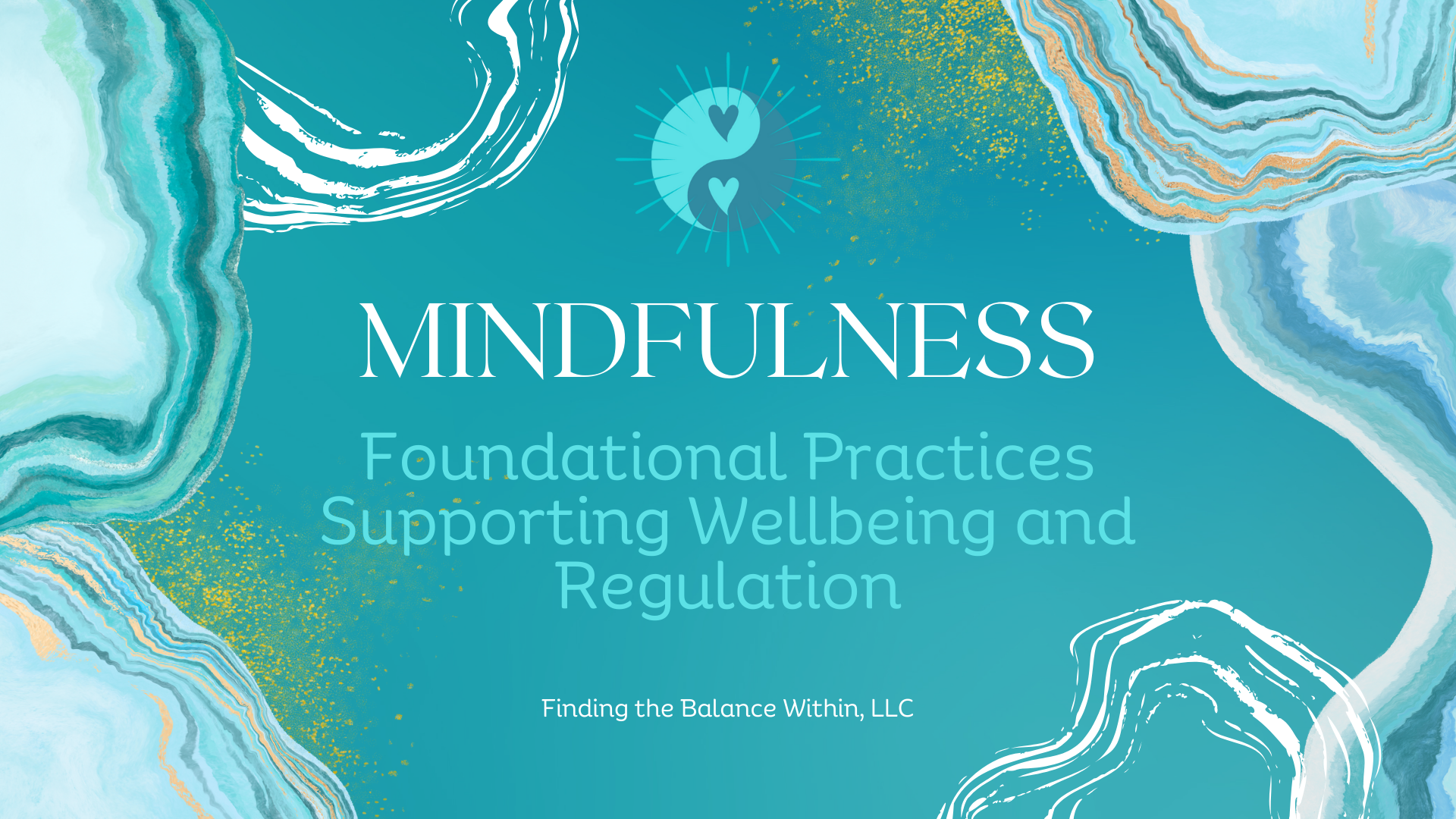Lisa has been an integral part of developing the Sustainable Wellness program in Aurora Public Schools. Using mindfulness strategies as a foundation for supporting wellbeing, the programs she has developed empower staff and students to regulate their brains and bodies to perform at their best and influence systemic changes that decrease burnout and increase job satisfaction.
Mindfulness is an essential tool in our self-regulation toolbox, decreasing stress and increasing wellbeing. Providing mindfulness practices and spaces to adults and children is both a preventative and healing opportunity for mental, emotional, and physical health. Explore the components of mindfulness programming below.
Bring this powerful programming to your school, district, or business by contacting Lisa to schedule a consultation.
-

Mindfulness
Mindfulness is bringing awareness to the internal and external experiences of the present moment with acceptance. Practicing mindfulness creates a space between stimulus and reaction, allowing us to engage in more thoughtful responses.
The practice of mindfulness has been shown to decrease stress, anxiety, and depression and increase self-awareness, attention, and emotional regulation.
-

Breathing
Breathing practices are the most accessible and fastest ways to find balance when we are feeling stressed or dysregulated. We can use our breath to increase our energy and attention (upregulate), decrease tension and stress (downregulate), and find balance between the two (coherence).
Learning breathing practices to support our emotional, mental, and physcial wellbeing empowers us to care for ourselves effectively in the moment.
-

Yoga & Mindful Movement
The practice of yoga and mindful movement helps us to tune in to ourselves physically, emotionally, and spiritually. Bringing intentional movement into our daily routines supports us in releasing the build up of stress hormones and regulating our brains and bodies.
Regular engagement in movement practices improves our emotional regulation and physical wellbeing.
-

Rest
Taking time to pause, reflect, and rest are critical aspects of being human and being well. In order to have the energy and attention we need to show up in our lives as our best selves for ourselves and others, we must create time for rest.
Rest comes in many forms and differing amounts of rest are needed at different times. Rest may look like a pause to look away from your computer or task, sitting quietly, laying your head on your desk, taking a nap, or taking a day or a week off.
Tuning into yourself and assessing what you need will guide how you choose to rest.
-

Connection
Connection is a deep human need that impacts our emotional, mental, and physical health. Connection practices increase awareness of our internal and external experiences and support us in making sense of them.
Intentionally engaging in authentic connection with others can decrease our sense of isolation and improve our quality of life.

